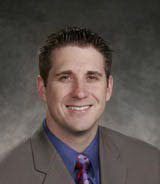In the recent Harvard Business Review article by Daniel Goleman and Richard Boyatzis discus the neuroscience behind leadership. They point out that great leaders are socially intelligent. Social intelligence is fundamentally "a set of interpersonal competencies built on specific neural circuits (and related endocrine systems) that inspire others to be effective." Recent research has identified "mirror neurons in widely dispersed areas of the brain. " These cells are peppered throughout the brain and are programed to mimic the emotions of others. Followers look for cues from their leaders and not only mimic their behaviors consciously, but also subconsciously. The discovery of mirror neurons further confirms the importance of maintaining a positive outlook as a leader. Model the Way, people are watching.
When interacting with others little neurons called Oscillators are guiding our physical interactions. Oscillators "coordinate people physically by regulating how and when their bodies move together." Leaders need to understand that upwards of 90% of communication is done so non-verbally. Not only should leaders be looking ways to align the words they say, but they should be finding ways to align their non-verbal communication with those who have chosen to follow them.
Leadership is not only a set of conscious behaviors but it is also based on a series of neural, bio-chemical, interactions in each of our brains.
Daren Blonski
www.sonomalearning.com
The Asshole Survival Guide: My Latest Book
-
The No Asshole Rule was published 10 years ago. It focused on building
civilized workplaces. Yet the most frequent question that it provoked were
variation...
8 years ago
